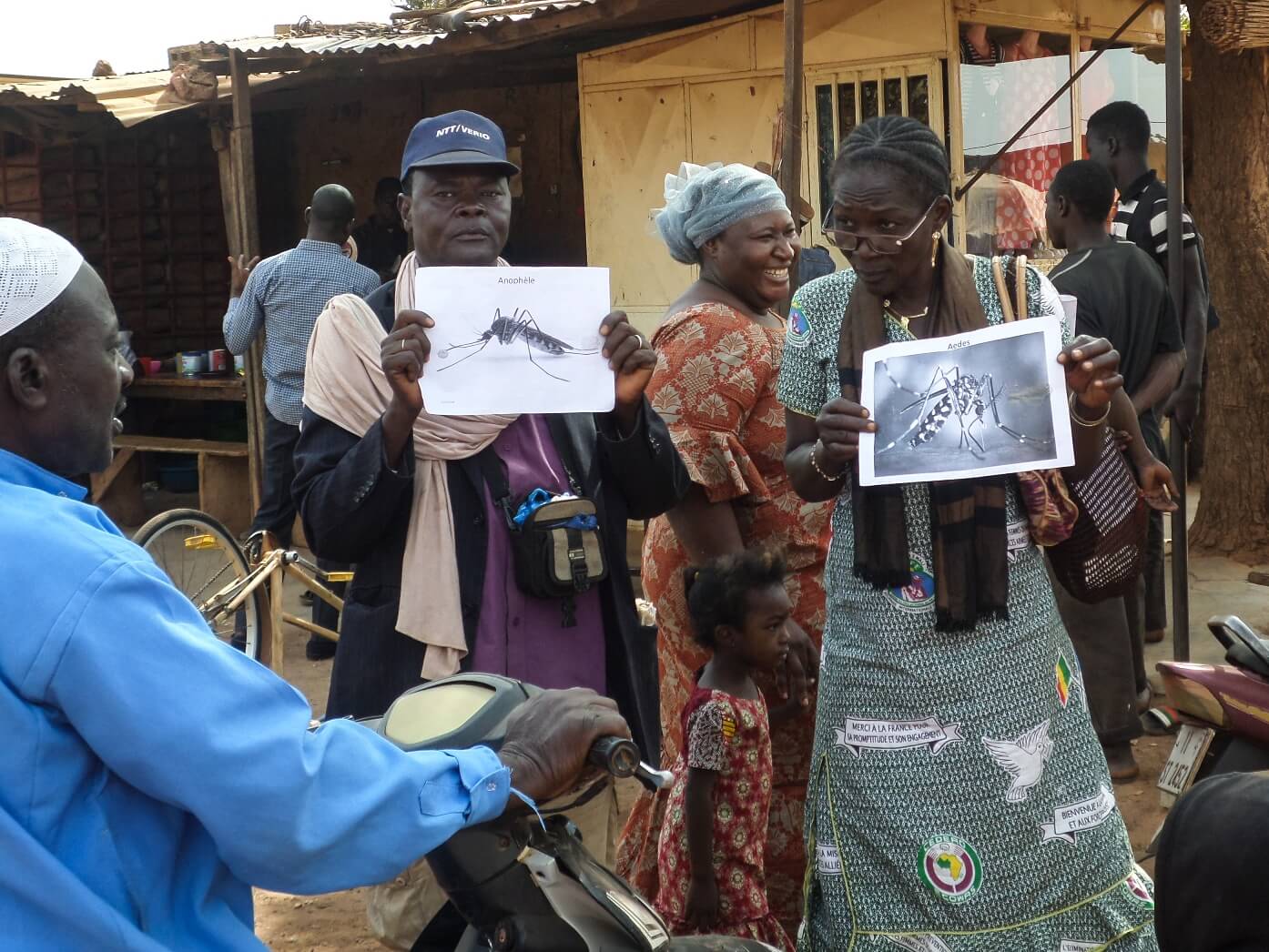In November and December 2016, the Start Fund was alerted to an outbreak of dengue fever in Burkina Faso. This little-known disease was reported to have affected more than 2,000 people and claimed 20 lives since August of that year. In a joint effort, Start Network members ALIMA, Doctors of the World and Handicap International were able to respond to the outbreak in Ouagadougou, treating existing cases of dengue as well as acting to prevent future cases.
Below, ALIMA gives an account of its efforts to combat dengue fever with support from the Start Fund.
In early December, 20-year-old Yacouba Sandwidi began to feel feverish. His head hurt; his body ached; he felt weak. He thought he had malaria. But when he went to a local health clinic for treatment a few days later, the test was negative. The doctor referred him to the infectious disease unit at the Yalgado Ouedraogo University Hospital, where Yacouba was admitted on December 8, after testing positive for dengue fever.
I didn't really know what dengue was before I got sick with it," Yacouba said. "The doctors had to explain to me what it was.
Dengue, which is a virus spread by the bite of infected mosquitoes, most often occurs in urban areas.
Many of the symptoms of dengue are similar to malaria or the flu, and include headache, high fever, nausea and muscle aches. In severe cases, patients can begin to hemorrhage or experience organ failure. In rare cases, if left untreated, dengue can be lethal.
The last outbreak of dengue in Burkina Faso was in 2013. There were 111 reported cases.
Yalgado Hospital was the first to take on severe cases of the virus during the 2016 outbreak.
Following the government's request for help in mid-November, ALIMA and its partners, SOS Médecins Burkina and KEOOGO, began supporting the Ministry of Health-led response to the outbreak by offering free care to dengue patients at Yalgado Hospital and two other district hospitals in Ouagadougou.
Photos © ALIMA / Sophie Garcia
Yacouba was one of more than 70 patients who ALIMA and its partners helped care for between November 18 and December 26.
Dengue fever can be treated by managing its symptoms.
When I first went to the hospital, I felt very terrible," Yacouba said. "I had a fever of 41 degrees [Celsius]. The doctors gave me medications to help lower my fever and reduce the aches. They also put me on an IV drip. I slept a lot. But soon I started to feel better.
After three nights in the hospital, Yacouba was discharged.
Yacouba returned to his home in Ouagadougou, where he lives with his parents, four sisters and older brother, on December 11. He now sleeps under a mosquito net each night.
Yacouba, who is a student at the vocational high school Bruno Buchwieser in Ouagadougou, hopes to become an electrician.
When I was in the hospital, I missed going to school, I missed my friends. I'm happy to be back in class again. I'm happy to feel healthy again.
Thanks to a grant from the Start Fund, ALIMA and its partners were, among other activities, able to treat 70 patients for dengue fever, distribute 2,100 rapid diagnostic tests, train nearly 300 health care workers on dengue detection and care, support anti-mosquito spraying at 50 health clinics, and distribute more than 7,000 leaflets and posters to educate communities about dengue, in November and December 2016.
Read ALIMA's blog on Exposure
Read more about the Start Fund

